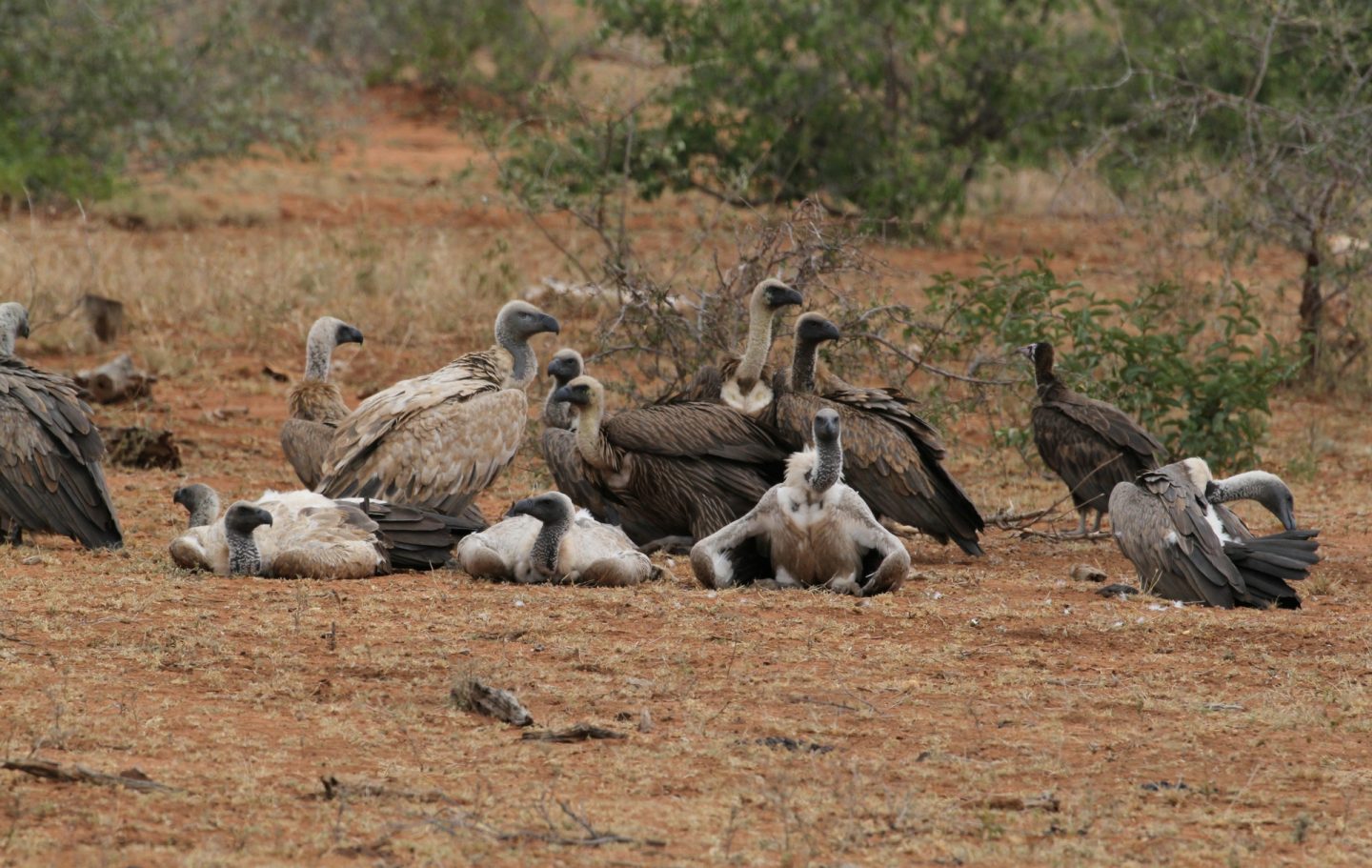However, they face many threats from human activities such as electrocutions and collisions with electrical structures, a decrease in food availability, and poisoning from veterinary drugs. Established in 2007, the Vulture Conservation Project (VulPro) works across South Africa to protect the endangered Cape vulture and other species. It approaches vulture conservation in an integrated, multidisciplinary fashion, combining education and good science with networking, capacity building and knowledge generation.
VulPro operates a vulture rescue and rehabilitation programme to treat injured, grounded, and disabled vultures, which are released as soon as possible and subsequently monitored. It also runs ‘vulture restaurants’, which provide wild populations with supplemental food in the form of uncontaminated carcasses. Special breeding facilities rear vulture chicks for reintroduction programmes and to supplement existing colonies. Wild populations are monitored with systematic observations, with individuals tracked using tags and GPS devices to learn more about their distribution and ranging behaviour. A research programme studies the effect on the birds of veterinary drugs often found in livestock that they might eat. There is also an outreach and education initiative which gives talks and presentation, conducts workshops and training sessions, and assists with farmer/vulture conflict situations.
Since 2009, Tusk has provided annual grants to VulPro, mainly to fund monitoring of the Cape vulture populations, community workshops and development of the Vulture Centre. Specific items supported by Tusk have included a solar water pumping system; updating the vulture restaurant database and developing a database for tagged vultures. In 2013, VulPro founder Kerri Wolter was nominated as a finalist for the Tusk Award for Conservation in Africa.
Vultures are a critical but undervalued component of African ecosystems. Continuing support for the work of VulPro is essential to raise their profile and combat their ongoing decline.

